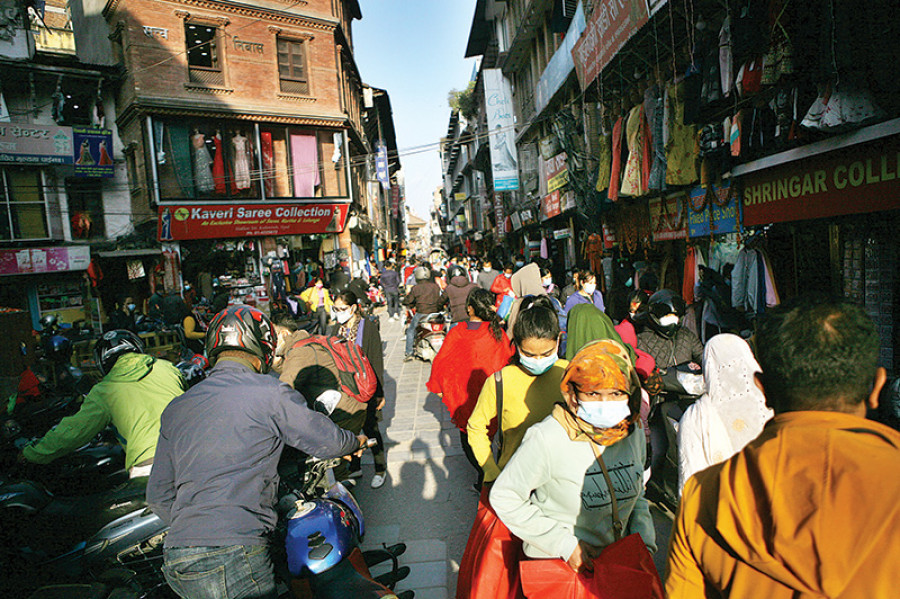Editorial
Guard up
People are letting their guard down while the risk of Covid-19 has not subsided.
We are in the middle of a pandemic. The risks posed by the coronavirus remain in Nepal, despite fewer tests and relatively low new infections, but more and more people are becoming complacent about Covid-19 as infectious disease experts repeatedly advise the public to wear masks and maintain physical distancing. According to officials at the Ministry of Health and Population who expect a resurgence of new infections to start in the country in three weeks, a second wave is inevitable because most people are letting their guard down while the risk of Covid-19 has not subsided.
Protests and mass gatherings following the dissolution of the House of Representatives occur almost every day across the country. Most businesses, including nightclubs, gyms and salons have resumed their operations, and public mobility has gone back to pre-pandemic days. The ‘umbrella street’ that attracts hundreds of youth every day to New Road is a recent example of how safety measures are disregarded. The government too, which should be devising an umbrella approach to deal with the Covid-19 situation amid positive developments on the vaccine front continues to be aloof instead of expediting testings and warning the public against pandemic complacency.
Instead of keeping our guard up amid reports that a more contagious variant of the coronavirus has been detected across Asia, including India, we are becoming more and more careless. Both the public and the government need to acknowledge that we only have non-pharmaceutical precautions as our best defence against the pandemic unless we are all vaccinated; and if we fail to practice safety measures, our situation can rapidly spiral down.
Earlier this month, the World Health Organisation warned governments and citizens not to drop their guard against the pandemic even with vaccines nearing rollout, saying health-care systems could still buckle under pressure. World Health Organisation Director-General Tedros Adhanom Ghebreyesus said the pandemic still had a long way to go, and that citizens and government decisions would determine the pandemic’s course and when it would end.
We are in what we could call the pandemic’s transition phase but a crucial one. Both the government and the public have to continue practising safety measures and avert any surge of infections and tragedies. It is good news that the government has written to the Indian government requesting vaccines to inoculate around 20 percent of the population, and another 20 percent through the World Health Organisation could come as early as March of 2021, according to ministry officials. But we cannot overlook the fact that there is a growing perception that the pandemic is over as is evident by the viral photos and videos of crowded protests, nightclubs or the umbrella street on social media.
As 2020 ends, each of us has to be responsible and not let our guard down because we cannot foretell how severe a second wave could be or how our fragile health infrastructure could easily reach their capacity. We have lived the biggest story of our time in the past nine months. We have Covid fatigue. We are tired and want to return to everyday life. The narrative hereon will depend on how we decide to move forward and continue to practice precautions to control the coronavirus. We do not know when the pandemic will end or when we will all be vaccinated, but we know how to contain it.




 18.12°C Kathmandu
18.12°C Kathmandu














